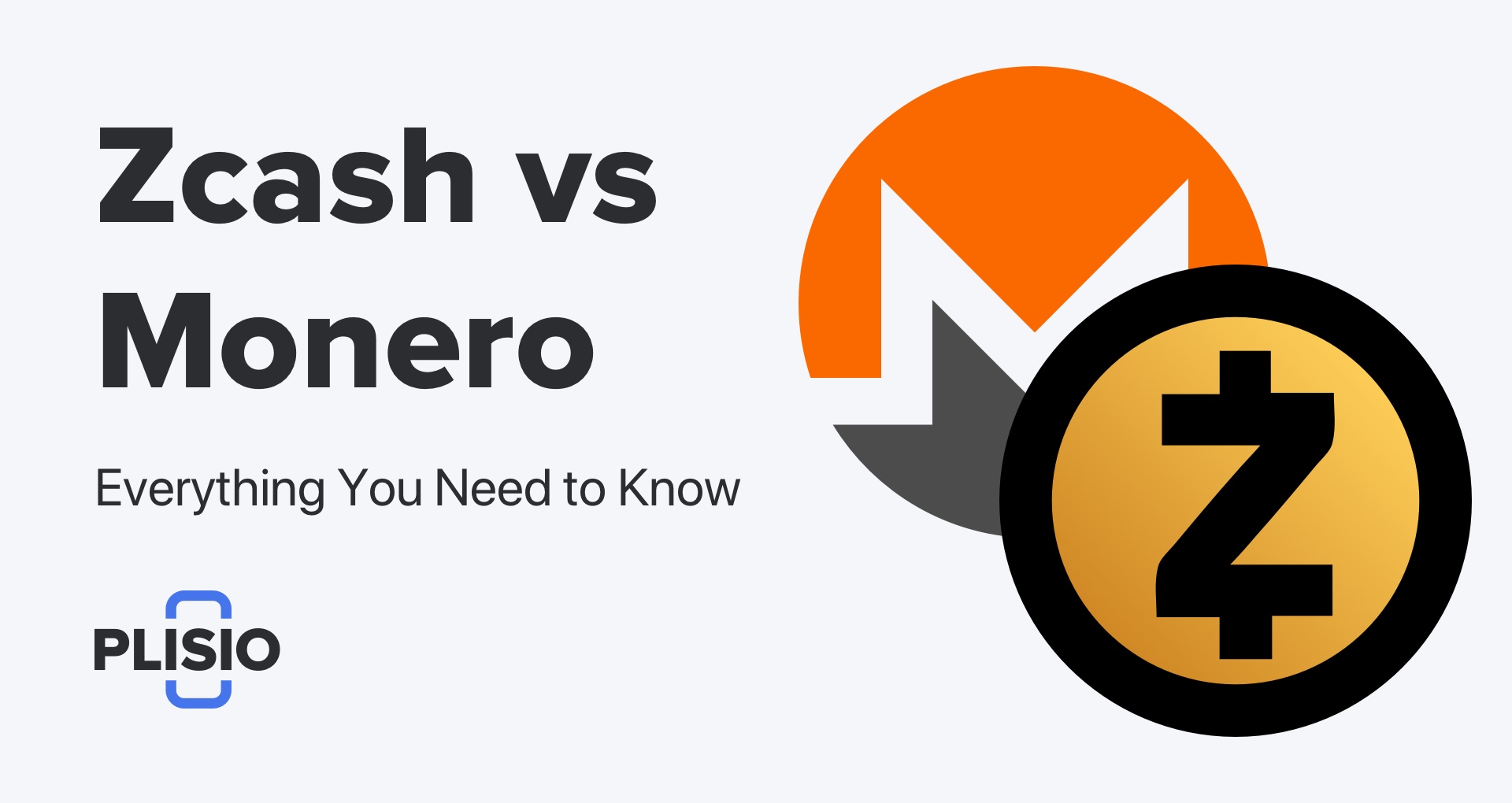Zcash vs Monero: Choosing Between the Privacy Coins

Cryptocurrency has gained popularity for various reasons, but one of them has been always of prior importance - enhanced privacy and security offered by the blockchain technology. However, some cryptocurrencies take privacy more seriously that the other, giving rise to the concept of privacy coins. Monero and ZCash are two of the most sought-after coins of such kind, but the question is, which one is superior? Let’s find out.
Zcash Overview
The inception of ZCash can be traced back to a professor and two of his students at Johns Hopkins University, who collaborated to create a privacy-focused Bitcoin hard fork known as Zerocoin.
ZCash was finally launched in 2016, aiming to improve Bitcoin's privacy features. It leverages cryptography to provide users with advanced privacy by incorporating zero-knowledge proofs to hide transaction details such as the sender and recipient’s address and transaction amount.
To protect the identity of the sender and receiver, ZCash employs shielded addresses to guarantee anonymity. The zk-SNARK (Zero-Knowledge Succinct Non-Interactive Argument of Knowledge,) zero-knowledge proof protocol enables shielded addresses to operate on a public blockchain, allowing for anonymous transactions.
However, ZCash is not entirely private because it is a Bitcoin fork, and private transactions are optional, not mandatory. Users can choose between a shielded address and a regular transparent address, which exposes the wallet address on the blockchain, just like other cryptocurrencies.
Zcash Pros:
-Zcash is easily exchangeable for other coins
-Due to its fixed supply, Zcash is guaranteed to have high prices
-It offers several levels of anonymity to choose from
-The Zcash blockchain is ASIC resistant
-It enables a shift from public to private transactions
Zcash Cons:
-Restricted to CPU mining
-Mainly designed for Linux users
Monero Overview
Monero, was launched in 2014 by anonymous founders, a bit earlier than Zcash. The whitepaper that inspired Monero's creation was written by an individual who used the pseudonym Nicolas von Saberhagen in 2013. Monero was launched the following year, and despite being valued at under a dollar for several years, its price started to rise in 2016 and soared during the crypto boom of 2017. However, Monero's real appeal lies in its privacy features.
Monero's blockchain ensures complete privacy, including the concealed info on the sender and receiver's addresses and the transferred amount. Monero utilizes open-source software, but its blockchain is not publicly accessible. Monero employs various technologies to ensure user privacy, including Ring Confidential Transactions (RingCT) and ring signatures.
RingCT encrypts transactional information, while ring signatures obscure the real sender's identity by combining their signature with signature fragments from a group of people, making it impossible to determine the true sender.
Monero Pros
-Stealth addresses and Ring signatures provide high levels of privacy
-All transactions are entirely confidential
-Faster block time compared to Bitcoin
-Fungible and untraceable
Monero Cons:
-Monero's hash rate is largely controlled by three mining pools
-Limited support from crypto wallets, unlike Plisio
If you're looking to enhance your privacy and start accepting privacy coins for your business, integrating a reliable payment gateway into your website or online store is a great way to get started. One option to consider is the Plisio platform, which offers a user-friendly and efficient solution for merchants who want to accept multiple cryptocurrencies, including both Zcash and Monero.
Differences between Zcash and Monero
Zcash and Monero are two leading privacy coins in the crypto market, and while they share some similarities, there are also significant differences in how they ensure user privacy during transactions.
Monero uses privacy-enhancing technologies to make every transaction completely anonymous and private by default. In contrast, Zcash allows users to choose between making shielded or transparent transactions. This flexibility has made Zcash regulatory-friendly and a popular addition to crypto exchanges. Monero, on the other hand, has faced increased scrutiny from regulators due to its complete privacy.
Another difference between the two coins is their transaction speed. Monero creates new blocks every two minutes, while Zcash's block time is around two and a half minutes. However, the most intriguing contrast lies in their respective development teams. Monero's team remains largely unknown, with only two lead developers publicly identified. In contrast, Zcash has an open team with notable names in the crypto and blockchain space serving as advisors.
Bottom Line
Choosing between Monero and Zcash depends on individual preferences and intentions for using the privacy coins. While some may prefer Monero's unlinkable transactions, others may be drawn to Zcash's emphasis on cryptography research and development. Regardless of the choice, it is crucial to ensure the safety of your investment by storing it in a hardware or software wallet that enables you to keep your private keys and seed phrase secure.
If you wish to work with either of the two privacy coins, you will need a crypto payment gateway that has multiple coin support. That’s what the Plisio cryptocurrency gateway has to offer - it has 19 cryptocurrencies to choose from, including both Zcash and Monero. Plisio also provides a free cryptocurrecny wallet that has the Monero coin full support.
What's more, merchants don't need to have any specific coding knowledge to integrate the payment gateway into their website or online store, making it accessible to a wide range of users. Another advantage is one of the lowest fees on the market, which is only 0.5% for a wide range of tools like mass payouts, bookkeeping tools, customizable donation page and many other. Check it out now!
